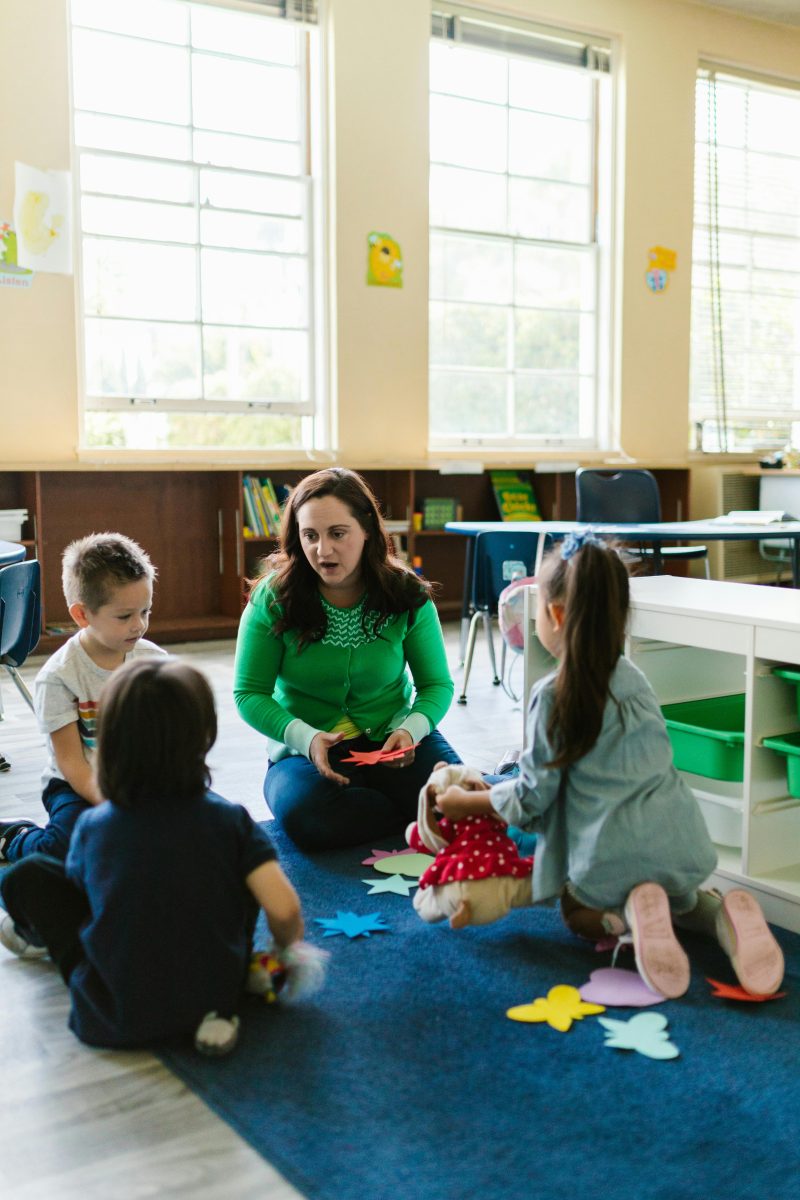
Written by Jac Lai
Such a simple task, such a challenging task, such a fun task – moments like these are what I crave. The thrill of unlocking another young mind, the smiles and excitement that comes from the warm buzz of 28, nine-year old’s, discovering their own learning journey. I still try to find that feeling.
I guess I always knew I wanted to be a teacher. My seven-year-old self felt extremely proud of assisting my brother to read words like ‘lorry’ and ‘friend’. I was always good with books and words. Books provide a safe space to explore and absorb another world, all its details, characters and environments soaking in. They become part of your own construction of the world. Yet with all the books I could inhale, it still didn’t warn me that being both Autistic and a teacher without the right knowledge, the right supports and the right self-care, just could not be sustained.
The feelings of teacher guilt still linger, hanging in my stomach like my pit of depression that visits me in waves throughout my life.
It is one thing to be depressed, it is another entirely to be depressed and in burnout from a relentless job, masking your true self and so, so tired from playing a social game that everyone else seems to have the manual for.
Being diagnosed at 36, after self-identifying for a time, was the formal validation that I craved to truly be accepted. It allowed me to show myself compassion for the difficulties I had to overcome to feel like I belonged; even though I knew I was rarely truly accepted by others. I was socially isolated – and still am to a certain extent – but I now know I like it that way because it is me, and that is okay, and I don’t need to explain.
Throughout high school, university and the workplace, loneliness seemed to be my constant companion and rarely left my side. Yet with my students, they accepted me, warts and all. No matter what mood I was in, no matter how grumpy I was, no matter how tired I was, they were there to support and hold me up.
My students gave me the strength to do a job I loved, because they truly do accept you as you are. The more vulnerable you are, the more you let them in, the better the rapport – and in teaching, relationships are the captain.
It wasn’t the relationships that created conflict and it wasn’t the students that created the exhaustion. It was a lack of understanding of my true self and not possessing the capability to speak for myself that led to Autistic burnout as a teacher.
Throw all of that together with trying to navigate where to go for lunch and with which group, and dealing with my executive functioning manager who had left the building a while back, taking with it my focus, task completion, prioritising, and emotional regulation skills, while trying to be there emotionally for 28 little people – and my brain just wanted to blow up.
I don’t know how I managed it all for so long. Fast forward nearly 18 months, and the lessons are still coming. Why didn’t I realise sooner? Some days the guilt of that feels like a crushing weight is once again on my shoulders. It’s been a lesson in self-kindness and acknowledging I was a good enough teacher, I cared, I worked hard, I spent my own money, I was in the classroom early and late, I wanted to make a difference.
I only received a pat on my back once I left. What does that say about feedback? How is a neurotypical teacher supposed to navigate such a system, let alone us Autistic teachers? How is an Autistic student to navigate it, when the system doesn’t acknowledge the strengths of those students, even when they have the most affirming family and supports?
My message to you, my other nuerokin, is to put yourself first. Do not forsake your worth, let alone your Autistic self to others. Ask questions, determine who you are, your strengths, your loves, your difficulties, your hopes, your dreams.
I have few real friends, both brand new and ancient, but it is these few that accept me, challenge me, and push me to treat myself with dignity, respect, and love. Just like my students did all those years ago.
Jac Lai is a 38-year-old Autistic female, finding her own way in life. “I am a mum, a wife, and an avid animal lover (mostly horses, wolves, and cats). I have good and bad days. I know I need time to myself; I know I need low light to work at my best, I know I need acknowledgement from those close to me that I matter, I know that I stim when I am anxious, I know that I overshare my loves when I am nervous. Own it all, that is how you know yourself. And keep reading, never stop.”

The Reframing Autism team would like to acknowledge the Traditional Owners of the lands on which we have the privilege to learn, work, and grow. Whilst we gather on many different parts of this Country, the RA team walk on the land of the Awabakal, Birpai, Whadjak, and Wiradjuri peoples.
We are committed to honouring the rich culture of the Aboriginal and Torres Strait Islander peoples of this Country, and the diversity and learning opportunities with which they provide us. We extend our gratitude and respect to all Aboriginal and Torres Strait Islander peoples, and to all Elders past and present, for their wisdom, their resilience, and for helping this Country to heal.